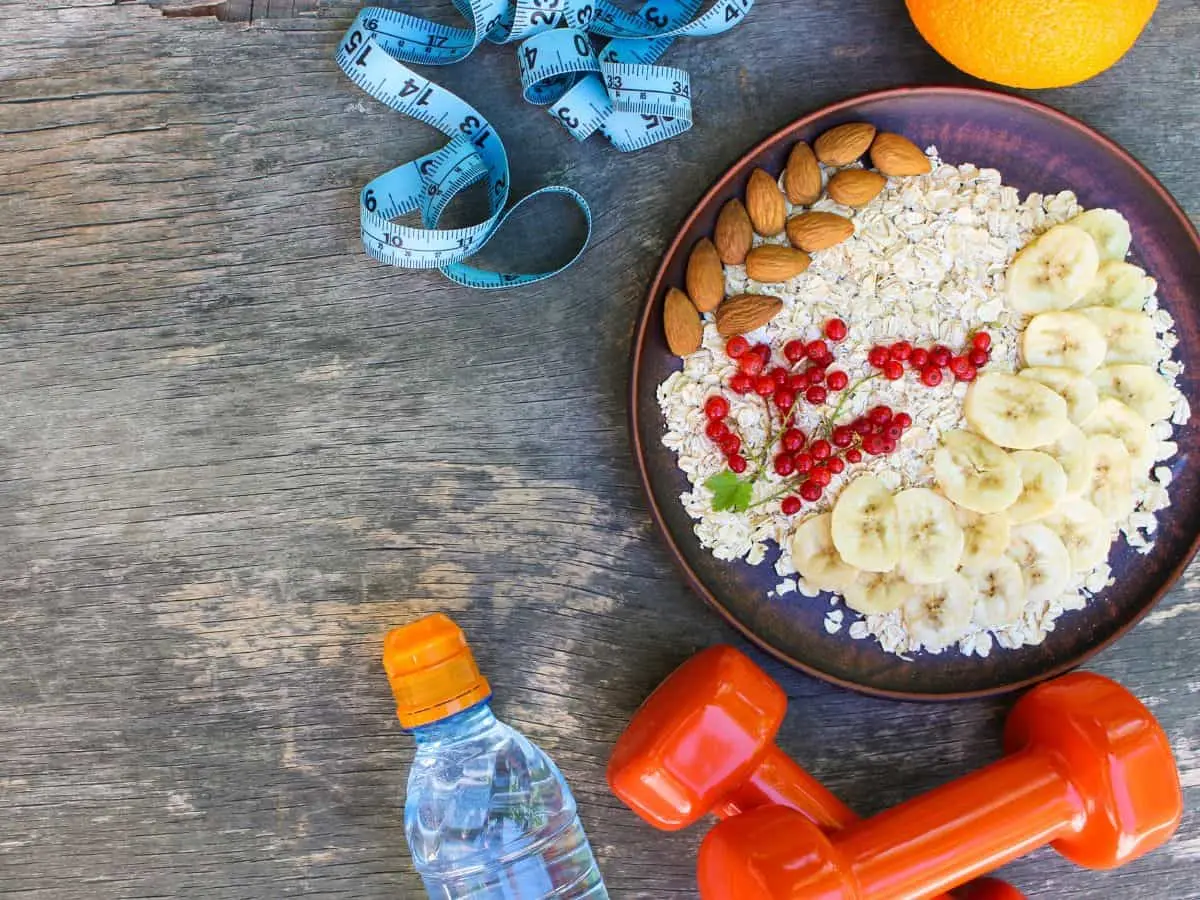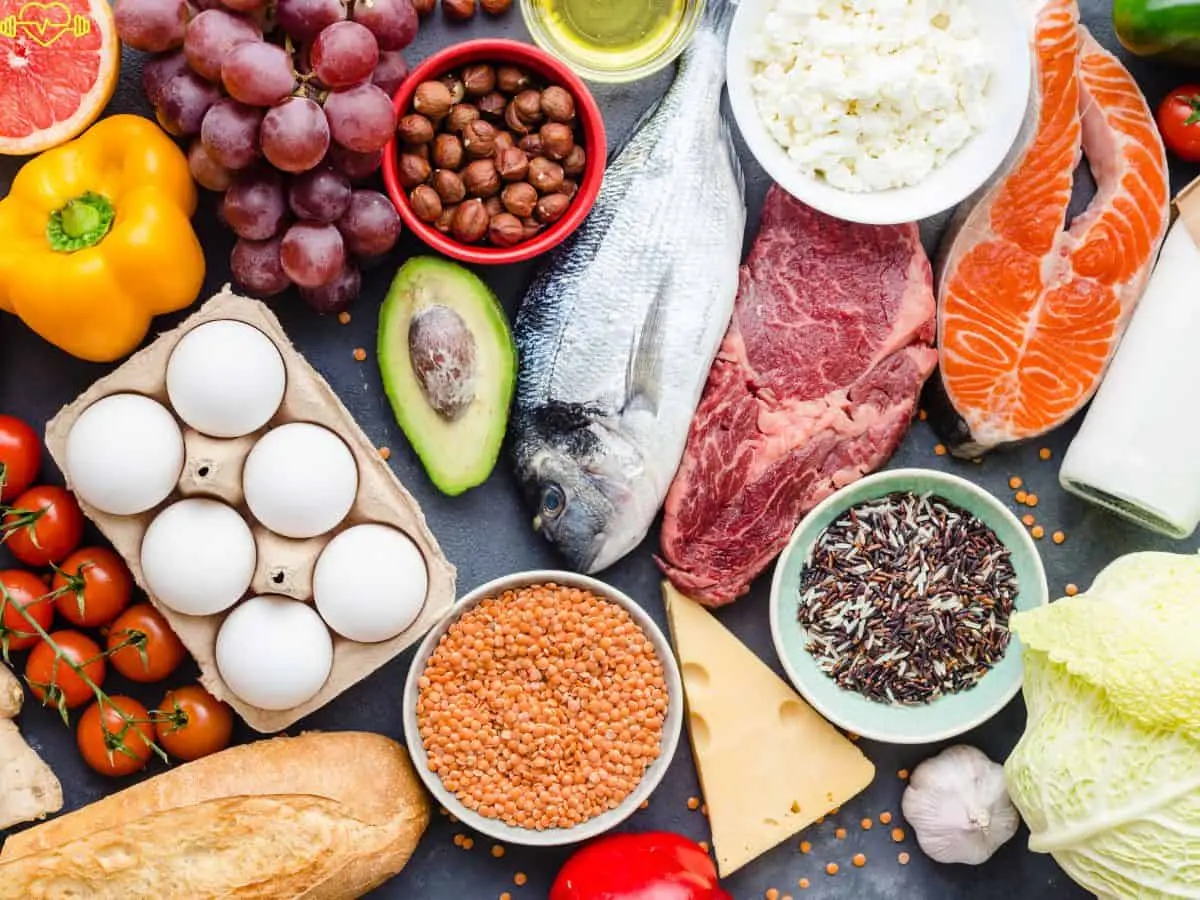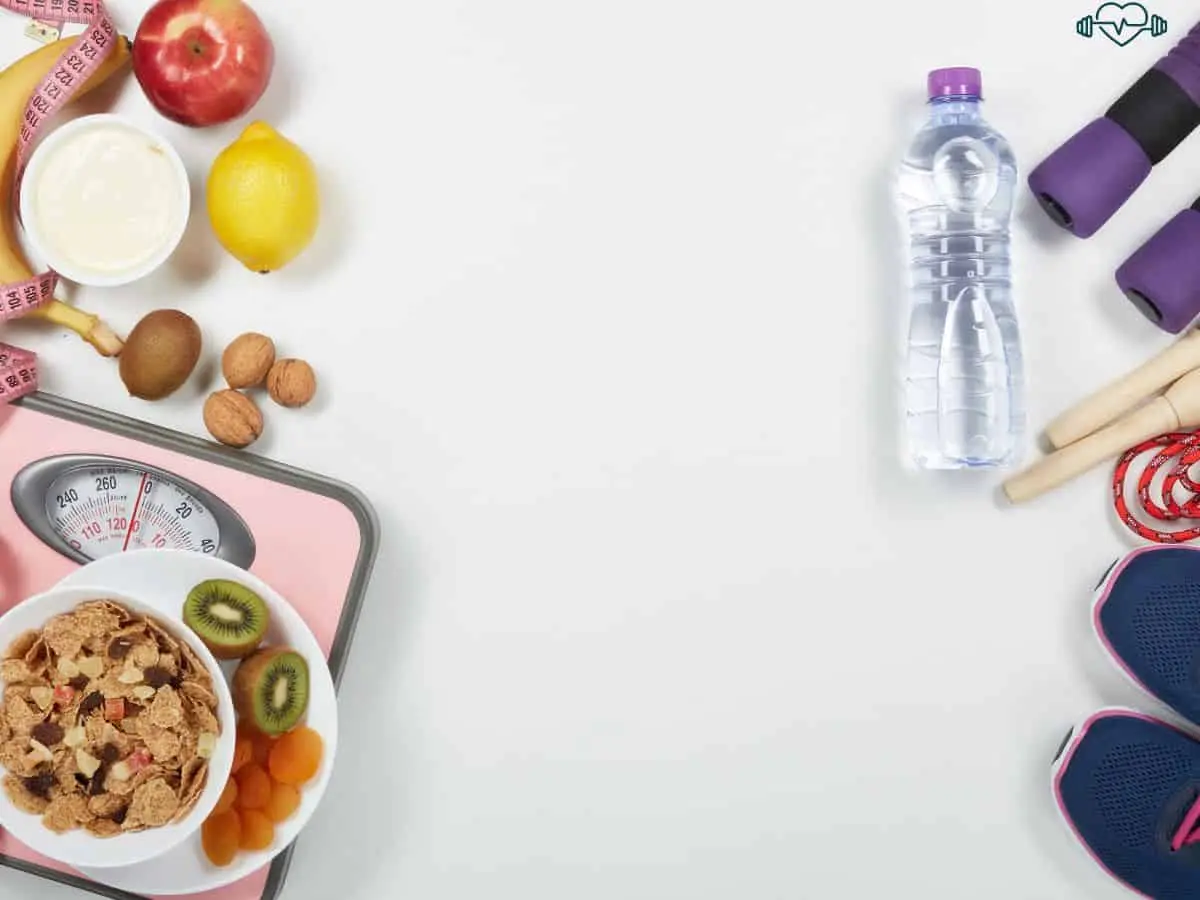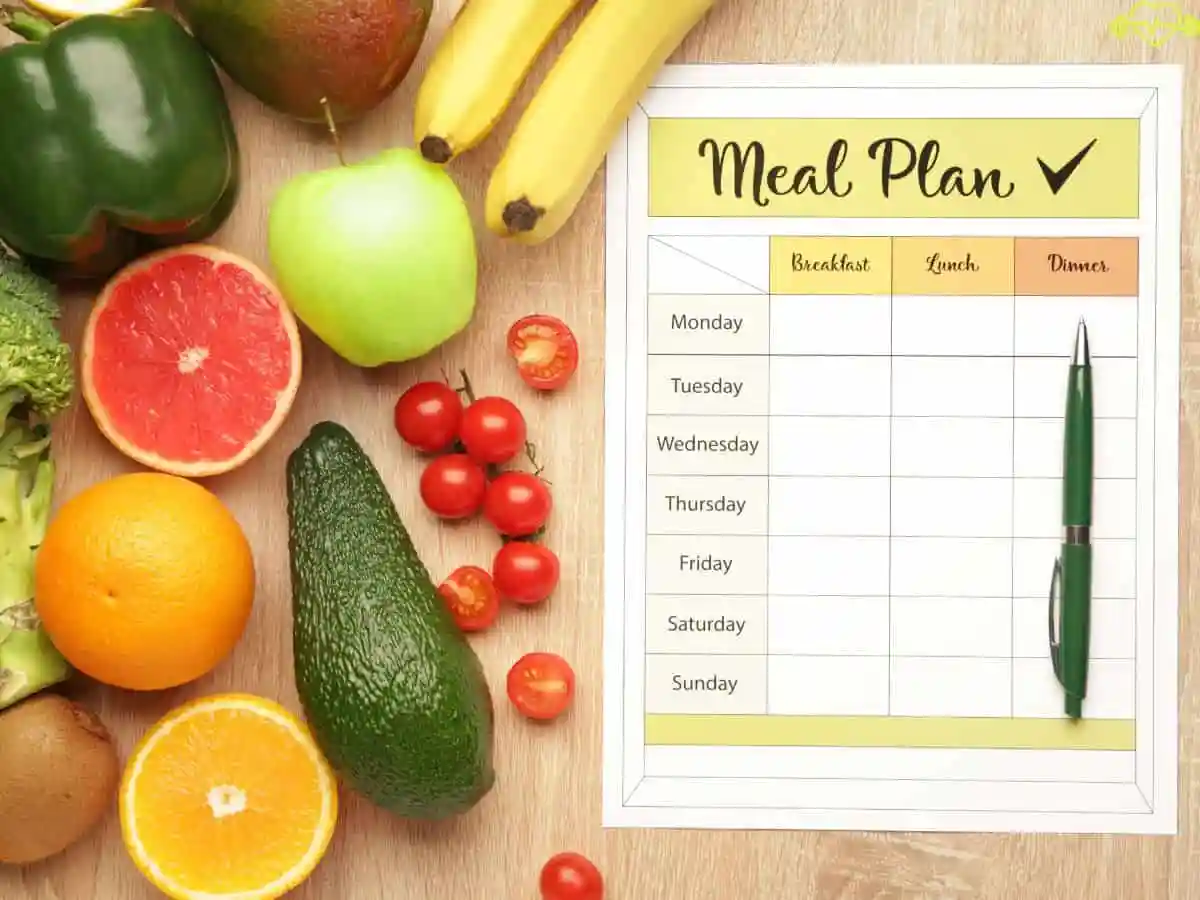Table of Contents
1. Introduction:
Calisthenics is more than just an effective way to build strength using bodyweight exercises—it’s a test of endurance, mobility, and functional fitness. Unlike weightlifting, where external resistance plays a significant role, calisthenics relies on leverages, body control, and relative strength. To perform at your peak, proper nutrition is just as important as your training routine.
The Role of Nutrition in Bodyweight Training
Your body is your only resistance in calisthenics, making body composition, energy levels, and recovery crucial factors in performance. The right macronutrient balance fuels workouts, while micronutrients support joint health, flexibility, and endurance.
- Protein is essential for muscle repair and growth, ensuring you build strength without losing lean mass.
- Carbohydrates provide the energy needed for high-intensity moves like muscle-ups, planches, and explosive push-ups.
- Healthy fats support joint mobility and hormone regulation, both essential for long-term performance.
- Hydration and electrolytes keep your muscles firing properly and prevent cramping, especially in prolonged training sessions.
How Diet Impacts Strength, Endurance & Recovery
A well-structured calisthenics diet ensures that your body can perform optimally in all areas:
✅ Strength: Consuming enough protein and healthy fats supports lean muscle gains and body control.
✅ Endurance: Complex carbs and proper hydration prevent early fatigue and sustain energy during long sessions.
✅ Recovery: Post-workout nutrition with protein and anti-inflammatory foods helps repair muscle tissue and prevent soreness.
Failing to eat the right foods can lead to energy crashes, muscle fatigue, and slower progress, making it harder to master advanced calisthenics skills.
Common Nutrition Mistakes in Calisthenics
Many people sabotage their calisthenics progress by following poor nutrition habits, such as:
❌ Undereating or Overeating – Not consuming enough calories can lead to muscle loss, while excessive intake can lead to unnecessary weight gain, affecting movement efficiency.
❌ Neglecting Protein Intake – Without adequate protein, recovery slows, and muscle-building potential diminishes.
❌ Relying on Processed Foods – Processed foods lack essential nutrients and can cause inflammation, negatively impacting flexibility and performance.
❌ Poor Hydration – Dehydration reduces strength and endurance, leading to muscle cramps and decreased mobility.
By understanding how nutrition directly impacts calisthenics performance, you can fuel your workouts with the right foods at the right time, ensuring consistent progress in strength, endurance, and overall fitness.

2. Understanding the Nutritional Needs for Calisthenics
To excel in calisthenics, you need more than just a solid training routine—you need a well-balanced nutrition plan that supports strength, endurance, mobility, and recovery. Your diet should be carefully structured to fuel explosive movements, sustained energy, and muscle recovery, while also keeping your joints and connective tissues healthy to prevent injuries.
Macronutrients Breakdown: Fueling Performance with the Right Balance
Macronutrients—proteins, carbohydrates, and fats—form the foundation of any diet, but in calisthenics, their balance is particularly crucial. Unlike traditional weightlifting, where brute force and sheer muscle mass play a larger role, calisthenics requires a blend of strength-to-weight ratio, endurance, and flexibility, all of which are influenced by proper macronutrient intake.
✔ Protein (Muscle Growth & Repair)
- Essential for muscle recovery after bodyweight workouts, especially high-intensity routines involving explosive moves like muscle-ups, front levers, or handstands.
- Helps preserve lean muscle mass while keeping body fat low, optimizing the strength-to-weight ratio.
- Best sources: Lean meats, eggs, fish, Greek yogurt, cottage cheese, legumes, tofu, tempeh, and plant-based protein powders.
✔ Carbohydrates (Energy & Endurance)
- Fuel for workouts, especially dynamic movements like push-ups, dips, and pistol squats that require bursts of energy.
- Supports glycogen stores, preventing early fatigue and helping sustain endurance.
- Best sources: Whole grains, quinoa, oats, brown rice, sweet potatoes, bananas, berries, and fiber-rich vegetables.
✔ Fats (Joint Health & Hormone Regulation)
- Lubricate the joints and support overall mobility, preventing injuries during advanced movements like planches or one-arm pull-ups.
- Help regulate hormones like testosterone, which is crucial for muscle recovery and growth.
- Best sources: Avocados, nuts, seeds, olive oil, fatty fish, and coconut oil.
A well-balanced macronutrient ratio for calisthenics could look like:
🔹 40% carbs, 30% protein, 30% fats – for general performance and recovery.
🔹 50% carbs, 25% protein, 25% fats – for those prioritizing endurance and explosiveness.
🔹 35% carbs, 40% protein, 25% fats – for individuals focusing on lean muscle retention with body recomposition.
Micronutrients for Strength, Mobility, and Joint Health
While macronutrients provide the energy and raw materials for muscle building, micronutrients play a vital role in maintaining flexibility, joint health, and overall recovery. A deficiency in essential vitamins and minerals can lead to fatigue, slow recovery, and increased injury risk.
✔ Calcium & Vitamin D – Support bone density and muscle contractions, preventing stress fractures and cramps. Sources: Dairy, fortified plant milks, leafy greens, sunlight exposure.
✔ Magnesium – Helps muscle relaxation, recovery, and endurance. Sources: Nuts, seeds, dark chocolate, spinach, bananas.
✔ Omega-3 Fatty Acids – Reduce inflammation and keep joints supple for smoother movements. Sources: Fatty fish, chia seeds, flaxseeds, walnuts.
✔ Iron & B Vitamins – Boost oxygen transport and energy metabolism, preventing early fatigue. Sources: Lean meats, legumes, eggs, fortified cereals, spinach.
✔ Vitamin C & Collagen – Aid in connective tissue repair and joint health. Sources: Citrus fruits, bell peppers, bone broth, gelatin.
Hydration & Electrolyte Balance for Endurance and Muscle Function
Hydration is often overlooked, but it plays a crucial role in calisthenics performance, endurance, and injury prevention. Since calisthenics involves a lot of bodyweight control and high-rep movements, dehydration can lead to muscle cramps, joint stiffness, and decreased power output.
✔ Water Intake
- Aim for 3–4 liters (100–135 oz) per day, depending on activity level and climate.
- Drink before, during, and after workouts to prevent dehydration.
✔ Electrolytes for Muscle Function
- Sodium, potassium, magnesium, and calcium help maintain nerve signaling, muscle contractions, and hydration levels.
- Replenish electrolytes naturally with coconut water, bananas, leafy greens, yogurt, and lightly salted meals.
- Avoid excessive processed sports drinks that contain added sugars and artificial ingredients.
Final Thoughts
Understanding how macronutrients, micronutrients, and hydration influence your calisthenics performance is the first step toward optimizing your training, recovery, and endurance. By fueling your body correctly, you’ll enhance your strength-to-weight ratio, minimize fatigue, and accelerate muscle recovery, ultimately mastering advanced bodyweight movements with ease.

3. Best Foods for Calisthenics Athletes
Your nutrition choices directly impact your calisthenics performance, recovery, and endurance. Unlike weightlifting, which prioritizes brute strength, calisthenics requires an optimal strength-to-weight ratio, meaning you must fuel your body with nutrient-dense foods that support lean muscle, endurance, and mobility without unnecessary bulk.
To ensure peak performance, focus on high-quality proteins, energy-boosting carbohydrates, and healthy fats that enhance recovery, minimize inflammation, and sustain prolonged bodyweight training sessions.
Best Protein Sources for Calisthenics Athletes (Muscle Growth & Recovery)
Protein is essential for muscle repair and growth, especially after bodyweight workouts that involve intense eccentric loading, explosive movements, and endurance-based exercises. Since calisthenics engages multiple muscle groups at once, consuming the right protein sources ensures faster recovery, reduced muscle breakdown, and consistent progress.
✔ Lean Animal-Based Proteins:
- Eggs – Complete protein source with essential amino acids for muscle repair.
- Chicken breast & turkey – High in protein, low in fat, perfect for lean muscle retention.
- Salmon & tuna – Packed with omega-3 fatty acids, reducing inflammation while promoting recovery.
- Greek yogurt & cottage cheese – Rich in casein protein, which provides sustained muscle repair overnight.
✔ Plant-Based Protein Sources:
- Lentils & chickpeas – Great source of protein and complex carbs, ideal for long-lasting energy.
- Quinoa – A complete plant protein containing all 9 essential amino acids.
- Tofu & tempeh – Excellent meat alternatives, rich in protein, iron, and calcium for muscle and bone health.
- Plant-based protein powders (pea, hemp, rice protein) – Perfect for post-workout recovery shakes.
🔹 Pro Tip: Aim for 0.8–1.2 grams of protein per pound of body weight to optimize strength and recovery in calisthenics.
Healthy Carbohydrates for Energy & Endurance
Carbohydrates act as the primary fuel source for calisthenics, helping to restore glycogen stores, power explosive movements, and sustain endurance-based workouts. Unlike weightlifting, which relies on shorter bursts of power, calisthenics often involves high-rep routines, prolonged muscle engagement, and full-body control, making complex carbohydrates a necessity.
✔ Slow-Digesting Carbs for Sustained Energy:
- Quinoa & brown rice – High in fiber and slow-releasing energy, preventing mid-workout crashes.
- Oats – Great for pre-workout meals, providing steady glucose levels for longer endurance.
- Sweet potatoes – Loaded with vitamins, antioxidants, and fiber, helping with recovery and sustained energy.
- Whole wheat bread & pasta – Rich in complex carbs, supporting glycogen replenishment post-workout.
✔ Quick-Digesting Carbs for Immediate Energy Boost:
- Bananas – Packed with potassium and fast-digesting sugars for quick energy recovery.
- Berries (blueberries, strawberries, raspberries) – Contain natural sugars, antioxidants, and anti-inflammatory properties to aid post-workout recovery.
- Honey & dates – Perfect for a natural pre-workout energy boost.
🔹 Pro Tip: Prioritize complex carbs before training for sustained energy and simple carbs post-workout to replenish glycogen quickly.
Essential Fats for Joint Health & Hormonal Balance
Healthy fats play a crucial role in joint lubrication, hormone production, and long-term recovery—all of which are essential for calisthenics athletes. Since bodyweight exercises involve high-impact, full-range motions, ensuring proper joint health and reduced inflammation is key to preventing injuries and maintaining mobility.
✔ Omega-3 Fatty Acid Sources:
- Fatty fish (salmon, sardines, mackerel) – Reduces inflammation and joint stiffness, improving overall mobility.
- Chia seeds & flaxseeds – Excellent plant-based omega-3 sources for vegetarians and vegans.
- Walnuts & almonds – Rich in healthy fats, protein, and essential micronutrients.
✔ Monounsaturated & Polyunsaturated Fat Sources:
- Avocados – Packed with heart-healthy fats that support endurance and recovery.
- Olive oil – Helps reduce inflammation and supports brain function and recovery.
- Coconut oil – Provides MCTs (medium-chain triglycerides), which can be used as a quick energy source during training.
🔹 Pro Tip: Fat intake should be around 20–30% of daily calories, ensuring optimal joint health, energy levels, and hormonal regulation.
Final Thoughts: Eating Smart for Calisthenics Mastery
Fueling your body with the right combination of proteins, carbohydrates, and healthy fats ensures that you maximize strength, endurance, and recovery for calisthenics. Prioritizing nutrient-dense, whole foods will not only enhance your performance and mobility but also prevent injuries and keep you progressing toward advanced bodyweight skills.

4. Pre-Workout Nutrition for Maximum Performance
Your pre-workout nutrition plays a crucial role in how well you perform during a calisthenics session. Unlike traditional weightlifting, calisthenics requires a high level of endurance, body control, and explosive strength, meaning your body needs optimal fuel to power through high-rep sets, static holds, and complex movements like muscle-ups, handstands, and levers.
The right pre-workout meal or snack helps:
✅ Sustain energy levels throughout your training session.
✅ Prevent early fatigue and muscle breakdown.
✅ Improve endurance and strength output for better reps and progress.
✅ Optimize focus and coordination for executing controlled movements.
What to Eat Before a Calisthenics Workout (Timing & Meal Examples)
Your pre-workout meal should include a balance of:
✔ Complex carbohydrates – to replenish glycogen stores and provide long-lasting energy.
✔ Moderate protein – to prevent muscle breakdown and support strength output.
✔ Healthy fats (in moderation) – to provide steady fuel without slowing digestion.
👉 Ideal Timing:
- 2–3 hours before training → A full, balanced meal.
- 30–60 minutes before training → A light, quick-digesting snack.
🍽 Full Pre-Workout Meal (2-3 Hours Before Training)
If you have time before your workout, eat a well-balanced meal rich in complex carbs, lean protein, and healthy fats.
Examples:
🥣 Oatmeal + banana + almond butter → Great for sustained energy and muscle fuel.
🥗 Brown rice + grilled chicken + avocado → A perfect blend of slow-digesting carbs, protein, and fats.
🍠 Sweet potato + scrambled eggs + spinach → Provides fiber, protein, and essential micronutrients.
🥑 Whole grain toast + avocado + smoked salmon → Ideal for endurance and joint health.
🔹 Pro Tip: Avoid foods high in saturated fats or excessive fiber, as they can cause bloating and sluggishness.
The Importance of Glycogen Stores & Sustained Energy
Glycogen is the stored form of carbohydrates in your muscles and liver, serving as your primary energy source during intense workouts. Since calisthenics involves explosive, bodyweight movements, having full glycogen stores ensures:
✔ Improved endurance (longer sets, better performance).
✔ Faster muscle contractions (for pull-ups, dips, and explosive jumps).
✔ Better recovery post-workout (less muscle fatigue).
If glycogen stores are low, you may experience:
❌ Early muscle fatigue → Struggling to complete your sets.
❌ Reduced strength output → Fewer reps, less power in movements.
❌ Mental fog & lack of focus → Difficulty executing technical skills.
Best Glycogen-Boosting Pre-Workout Carbs:
🍚 Brown rice, quinoa, or whole wheat pasta → Ideal for long-lasting energy.
🍞 Whole grain bread or toast → A great base for a nutrient-dense pre-workout meal.
🍌 Bananas, dates, or berries → Natural sugar sources for quick energy release.
🥔 Sweet potatoes → High in fiber and packed with muscle-supporting micronutrients.
Quick & Effective Snacks for Last-Minute Energy Boosts
If you’re short on time and need a fast-digesting snack before hitting the bars, opt for easily absorbable carbs and a small amount of protein.
🥤 Protein smoothie (banana + whey protein + almond milk) → Quick to digest and fuels muscles.
🍏 Apple + peanut butter → A great balance of natural sugars, protein, and healthy fats.
🍫 Dark chocolate + almonds → Boosts alertness and endurance with caffeine and healthy fats.
🍯 Rice cakes + honey → Fast-digesting carbs for a quick glycogen refill.
🥜 Greek yogurt + granola → Combines protein and carbs for a steady energy supply.
🔹 Pro Tip: Avoid heavy, greasy, or high-fat foods right before your workout, as they slow digestion and cause sluggishness.
Final Thoughts: The Perfect Pre-Workout Fuel for Calisthenics
The key to maximizing calisthenics performance is strategic nutrition timing and food selection. Prioritize complex carbs, moderate protein, and minimal fats to fuel your endurance, strength, and recovery. Whether you have time for a full meal or need a quick energy boost, making the right food choices will keep you performing at your peak.
5. Post-Workout Nutrition for Recovery & Muscle Growth
After an intense calisthenics session, your muscles are in a state of breakdown, and your glycogen stores are depleted. To kickstart muscle recovery, reduce soreness, and maximize strength gains, proper post-workout nutrition is essential. The right nutrients help repair micro-tears in muscle fibers, replenish energy stores, and support muscle protein synthesis (MPS)—the key process responsible for muscle growth.
A well-structured post-workout meal should focus on:
✅ High-quality protein – to rebuild muscle fibers and accelerate recovery.
✅ Fast-digesting carbohydrates – to replenish glycogen and restore energy.
✅ Essential micronutrients – to support muscle repair, hydration, and performance.
✅ Healthy fats (in moderation) – to aid hormone regulation and inflammation control.
The “Anabolic Window”: When Should You Eat After Training?
The anabolic window refers to the 30 to 60-minute period after your workout when your body is most primed to absorb nutrients for recovery. While this window isn’t as short as once believed, consuming protein and carbohydrates soon after exercise helps:
✔ Trigger muscle protein synthesis (MPS) for optimal recovery.
✔ Reduce muscle breakdown and support tissue repair.
✔ Restore glycogen levels for energy replenishment.
✔ Minimize post-workout fatigue and soreness.
🔹 Pro Tip: If you can’t have a full meal immediately, a quick post-workout shake or snack can prevent muscle breakdown while you prepare your next meal.
Protein: The Foundation of Muscle Recovery
Protein is critical for repairing and rebuilding muscle tissue after calisthenics workouts. Since bodyweight training involves high-rep movements and time under tension, ensuring an adequate protein intake is essential for recovery and muscle definition.
Best Post-Workout Protein Sources:
🥚 Eggs & egg whites – High in leucine, a key amino acid for muscle growth.
🐟 Salmon & tuna – Rich in omega-3s, which reduce inflammation and aid recovery.
🍗 Chicken & turkey breast – Lean, fast-digesting protein sources.
🥛 Greek yogurt & cottage cheese – Packed with casein and whey protein for sustained recovery.
💪 Whey or plant-based protein shakes – Fast-digesting and convenient.
🥜 Lentils, chickpeas, and quinoa – Great plant-based options for muscle repair.
🔹 Pro Tip: Aim for 20-30g of high-quality protein within an hour post-workout to maximize muscle recovery and growth.
Carbohydrates: Replenishing Glycogen for Energy
Carbohydrates are essential for restoring glycogen levels after training. Without sufficient carbs, your body may break down muscle for energy, leading to slower recovery and decreased performance in your next workout.
Best Post-Workout Carbohydrate Sources:
🍚 Brown rice, quinoa, or whole grains – Slow-digesting and nutrient-dense.
🍌 Bananas, berries, or mango – Provide quick-digesting natural sugars and antioxidants.
🥔 Sweet potatoes & oats – Great for steady energy release and fiber.
🍯 Honey or dates – Fast-digesting carbs to replenish glycogen quickly.
🔹 Pro Tip: Pairing carbs with protein post-workout enhances muscle glycogen resynthesis and speeds up recovery.
Hydration & Electrolytes: Preventing Muscle Cramps & Fatigue
During a calisthenics workout, your body loses fluids and essential electrolytes like sodium, potassium, and magnesium through sweat. Rehydration is crucial for:
✔ Preventing muscle cramps and fatigue.
✔ Supporting nutrient transport and muscle function.
✔ Enhancing joint lubrication and mobility.
Best Post-Workout Hydration Sources:
💧 Water – The most important factor in recovery.
🥤 Coconut water – A natural source of electrolytes and hydration.
🍋 Lemon water with sea salt – Restores sodium and potassium levels.
🥛 Milk or almond milk – Provides fluids and essential nutrients for recovery.
🔹 Pro Tip: Adding Himalayan salt to your water can help replenish lost minerals and enhance hydration.
Healthy Fats: Supporting Recovery & Hormonal Balance
While fat isn’t a primary post-workout nutrient, including small amounts of healthy fats can support hormone production, joint health, and inflammation control.
Best Healthy Fat Sources Post-Workout:
🥑 Avocado – Rich in monounsaturated fats and vitamins.
🥜 Almonds, walnuts, and cashews – Provide anti-inflammatory properties.
🐟 Salmon & chia seeds – High in omega-3s, essential for muscle recovery.
🫒 Olive oil – Supports heart health and reduces inflammation.
🔹 Pro Tip: Keep fat intake moderate post-workout, as too much fat can slow digestion and nutrient absorption.
Post-Workout Meal & Snack Ideas for Maximum Recovery
🍽 Full Meal Options (Within 1-2 Hours Post-Workout)
🥗 Grilled chicken + quinoa + roasted vegetables → A well-balanced recovery meal.
🥚 Scrambled eggs + whole wheat toast + avocado → Great for muscle repair and sustained energy.
🐟 Salmon + brown rice + steamed broccoli → Ideal for reducing inflammation and supporting lean muscle growth.
🥔 Sweet potato + ground turkey + spinach → Packed with protein, complex carbs, and essential vitamins.
🍌 Quick Post-Workout Snacks (If You’re Short on Time)
🥤 Protein shake + banana → Fast-absorbing for muscle recovery.
🍎 Apple + peanut butter → A balance of carbs, protein, and healthy fats.
🍯 Greek yogurt + honey + berries → Great for gut health and glycogen replenishment.
🌰 Handful of almonds + dark chocolate → Boosts antioxidants and muscle recovery.
Final Thoughts: The Best Post-Workout Nutrition for Calisthenics
Your post-workout meal is just as important as your training. Proper nutrition after a calisthenics session ensures faster recovery, muscle growth, and long-term performance improvements. Focus on:
✔ Fast-digesting protein (whey, eggs, lean meats) to rebuild muscle.
✔ Quality carbohydrates (oats, fruit, rice) to restore glycogen.
✔ Hydration & electrolytes (water, coconut water) to prevent fatigue.
✔ Moderate healthy fats (avocados, nuts, salmon) for hormonal balance.

6. Meal Planning and Timing for Optimal Performance
Fueling your body properly is crucial for maximizing performance, endurance, and muscle recovery in calisthenics. A well-structured meal plan not only ensures consistent energy levels but also optimizes muscle growth, fat loss, and overall fitness.
To enhance strength, endurance, and recovery, your nutrition should be timed strategically throughout the day. By focusing on nutrient timing, you can improve workout performance, avoid energy crashes, and promote lean muscle development.
🔹 The Three Key Phases of Nutrition Timing
Your daily meal plan should focus on three key phases of nutrition timing:
1️⃣ Pre-Workout Nutrition – Eating before training ensures sustained energy levels and prevents muscle breakdown.
2️⃣ Intra-Workout Nutrition (if needed) – For longer, more intense workouts, hydration and electrolytes are crucial.
3️⃣ Post-Workout Nutrition – Aids muscle recovery, reduces soreness, and replenishes glycogen stores.
By balancing macronutrients throughout the day and consuming them at optimal times, you can maximize strength, endurance, and overall fitness gains.
🕒 Meal Timing Breakdown for Calisthenics Athletes
For optimal energy levels and muscle recovery, here’s how a daily meal plan can be structured:
⏰ Morning (Upon Waking):
✔ Hydrate with a glass of water + lemon + Himalayan salt.
✔ Eat a light meal or snack (if training early).
🏋️ Pre-Workout (60-90 Min Before):
✔ Balanced meal with carbs + protein (oats, eggs, chicken, rice).
💪 Intra-Workout (For Longer Sessions):
✔ Stay hydrated with water, coconut water, or electrolyte drinks.
🍽 Post-Workout (Within 1-2 Hours):
✔ Fast-digesting protein + carbs (protein shake, banana, Greek yogurt).
🍛 Lunch & Dinner (Balanced Meals):
✔ Lean protein + complex carbs + veggies to support muscle growth.
🌙 Evening (Before Bed):
✔ Light protein-rich snack (cottage cheese, almonds, casein protein).
🔹 Final Thoughts on Meal Planning & Nutrition Timing
Proper meal planning and strategic nutrient timing play a vital role in calisthenics performance, recovery, and body composition goals.
🏆 Key Takeaways:
✔ Fuel before training to maximize strength and endurance.
✔ Hydrate during workouts for sustained performance and recovery.
✔ Refuel post-workout with protein and carbs for muscle repair.
✔ Eat balanced meals throughout the day for optimal energy levels.
By mastering your nutrition timing, you can boost performance, accelerate recovery, and achieve peak fitness levels in your calisthenics journey! 💪🔥

7. Supplements: Do You Really Need Them?
While a well-balanced diet should be your primary source of nutrients, vitamins, and minerals, supplements can play a supportive role in optimizing performance, endurance, and recovery—especially for athletes and fitness enthusiasts practicing intense calisthenics training. However, not all supplements are necessary, and some may even be overhyped.
In this section, we’ll break down the most effective and scientifically-backed supplements to help you decide whether they align with your fitness goals.
🔹 Protein Powders vs. Whole Foods: Pros and Cons
Protein is a crucial macronutrient for muscle recovery, strength, and endurance, but should you rely on whole foods or add protein supplements to your routine? Let’s explore the pros and cons.
🥩 Whole Foods for Protein
Whole food sources of protein, such as chicken, eggs, fish, beans, tofu, and dairy, provide essential nutrients, including vitamins, minerals, and fiber (in plant-based proteins). They also contribute to better digestion, sustained energy levels, and satiety.
✅ Pros of Whole Foods:
✔ Naturally rich in essential amino acids for muscle repair.
✔ Provide additional micronutrients and healthy fats.
✔ Support better digestion and gut health.
✔ No artificial additives or processing.
❌ Cons of Whole Foods:
✘ Require more time to prepare and cook.
✘ Can be harder to consume in high amounts for muscle growth.
💪 Protein Powders (Whey, Casein, Plant-Based)
Protein powders, such as whey, casein, pea, or hemp protein, provide a quick, convenient, and easily digestible way to meet daily protein requirements, especially post-workout.
✅ Pros of Protein Powders:
✔ Fast-absorbing for immediate muscle recovery.
✔ Convenient for busy schedules and post-workout nutrition.
✔ Easy to mix with smoothies, oatmeal, or shakes.
❌ Cons of Protein Powders:
✘ Some contain artificial sweeteners, fillers, or additives.
✘ May cause digestive issues for lactose-intolerant individuals (whey protein).
🔹 Verdict: If you struggle to get enough protein from whole foods, a high-quality protein powder can be beneficial, especially after workouts when quick absorption is needed. However, prioritizing whole food sources should always come first.
🔹 Creatine and BCAAs: Do They Help with Endurance & Recovery?
⚡ Creatine: The Ultimate Performance Booster
Creatine is one of the most well-researched and effective supplements for enhancing muscle strength, power, and endurance. It helps regenerate ATP (Adenosine Triphosphate), the primary energy source for high-intensity workouts like calisthenics.
✅ Benefits of Creatine for Calisthenics:
✔ Improves strength and power output for explosive movements (pull-ups, dips, muscle-ups).
✔ Enhances muscle endurance and recovery.
✔ Supports lean muscle growth and hydration.
✔ Helps reduce muscle fatigue during intense workouts.
🔹 How to Take Creatine: A daily dose of 3-5g of creatine monohydrate is sufficient. There’s no need for a “loading phase,” and it can be taken any time of the day, with or without food.
💥 BCAAs (Branched-Chain Amino Acids): Are They Worth It?
BCAAs (Leucine, Isoleucine, and Valine) are essential amino acids that help reduce muscle breakdown and promote faster recovery. However, if you already consume enough protein from whole foods or protein supplements, you likely don’t need additional BCAAs.
✅ Potential Benefits of BCAAs:
✔ May help reduce muscle soreness and fatigue.
✔ Can support muscle retention during fasted training.
✔ Useful for those on a calorie deficit to prevent muscle loss.
❌ Downsides:
✘ If you consume adequate protein (from food or shakes), BCAAs may be unnecessary.
✘ Whole foods and whey protein naturally contain BCAAs.
🔹 Verdict: Creatine is highly recommended for strength and endurance athletes, while BCAAs may only be useful if you’re training fasted or consuming low protein.
🔹 Multivitamins & Joint Health Supplements: Preventing Injuries & Supporting Longevity
Calisthenics involves a lot of bodyweight movements, meaning your joints, tendons, and ligaments endure significant stress. To prevent injuries and support overall well-being, certain vitamins and minerals play a crucial role.
🍀 Multivitamins: Do You Need Them?
A high-quality multivitamin can help fill nutrient gaps in your diet, especially if you struggle to get enough vitamins from food. Look for multivitamins containing:
✔ Vitamin D & K2 – Supports bone strength and calcium absorption.
✔ Magnesium & Zinc – Enhances muscle function, sleep, and recovery.
✔ B Vitamins – Essential for energy metabolism and muscle repair.
✔ Omega-3 Fatty Acids – Supports joint health, brain function, and inflammation reduction.
🔹 Verdict: If you eat a balanced diet rich in whole foods, you may not need a multivitamin. However, for athletes training intensely, a daily multivitamin can help support overall health.
🦵 Joint Health Supplements: Protecting Your Joints & Ligaments
Calisthenics training places a lot of stress on joints, tendons, and ligaments, especially during high-volume pull-ups, push-ups, and dips. The following supplements can help:
✅ Collagen Peptides: Supports joint health, skin elasticity, and tendon repair.
✅ Glucosamine & Chondroitin: Helps maintain cartilage integrity and reduce joint pain.
✅ Turmeric & Curcumin: Natural anti-inflammatory properties that support faster recovery.
✅ Fish Oil (Omega-3s): Reduces inflammation and supports joint lubrication.
🔹 Verdict: If you experience joint pain, stiffness, or inflammation, adding collagen, glucosamine, or omega-3 supplements can be highly beneficial.
🚀 Final Takeaways: Should You Use Supplements?
🔹 Whole foods should always be the foundation of your nutrition plan.
🔹 Protein powders & creatine are the most effective supplements for strength & recovery.
🔹 BCAAs are only beneficial if protein intake is low.
🔹 Joint health supplements (Collagen, Omega-3s, Glucosamine) can help prevent injuries.
🔹 Multivitamins are useful for filling nutrient gaps but shouldn’t replace real food.
🎯 Pro Tip: Focus on a nutrient-dense diet first, and use supplements to fill in gaps when necessary.
8. Common Nutrition Mistakes and How to Avoid Them
Even with a well-structured calisthenics nutrition plan, many athletes make avoidable mistakes that hinder their performance, recovery, and muscle growth. Here are the most common pitfalls and how to fix them for optimal results.
🍽️ 1. Overeating or Undereating for Your Calisthenics Goals
🔹 The Problem:
Many athletes either consume too many calories, leading to excess fat gain, or don’t eat enough, resulting in muscle loss and sluggish recovery.
- Overeating: Some people believe they need to “bulk” aggressively to build muscle, but calisthenics relies on bodyweight movements, making excessive weight gain counterproductive.
- Undereating: Others under-fuel their bodies, thinking it will help them stay lean, but this can lead to muscle loss, fatigue, and slow recovery.
✅ The Solution:
✔ Determine your calorie needs based on your goal (muscle gain, fat loss, or maintenance). Use a calorie calculator and track your intake.
✔ Prioritize high-quality, nutrient-dense foods instead of just focusing on calories.
✔ Adjust your intake based on progress—too much weight gain? Reduce calories slightly. Not building muscle? Increase intake gradually.
📌 Pro Tip: Maintain a lean bulk approach (200-300 calorie surplus) for muscle gain without excessive fat. If cutting, go for a moderate calorie deficit (300-500 calories).
💧 2. Ignoring Hydration and Electrolyte Balance
🔹 The Problem:
Dehydration and electrolyte imbalances can cause muscle cramps, fatigue, and decreased workout performance. Calisthenics requires strength, endurance, and flexibility, all of which suffer if hydration is neglected.
- Sweating depletes sodium, potassium, and magnesium, crucial minerals for muscle contractions and recovery.
- Not drinking enough water leads to poor circulation, joint pain, and slower muscle repair.
✅ The Solution:
✔ Drink at least 2.5–3 liters of water per day, more if training intensely or in hot climates.
✔ Replenish electrolytes through natural sources like coconut water, bananas, spinach, nuts, or by using a homemade electrolyte drink (water + lemon + sea salt + honey).
✔ Monitor urine color—dark yellow means you’re dehydrated, while light yellow means you’re well-hydrated.
📌 Pro Tip: If you train fasted or sweat a lot, consider adding an electrolyte supplement to maintain optimal hydration levels.
🥦 3. Not Getting Enough Fiber and Micronutrients
🔹 The Problem:
Many athletes focus only on protein, carbs, and fats, neglecting fiber and essential vitamins/minerals. A lack of fiber can lead to digestive issues, while micronutrient deficiencies can cause fatigue, weak immunity, and poor muscle recovery.
- Low fiber intake results in poor digestion and irregular bowel movements.
- Deficiencies in vitamins (Vitamin D, B12, Iron, Magnesium, Zinc) can impair energy levels, focus, and strength.
✅ The Solution:
✔ Prioritize fiber-rich foods like vegetables, fruits, whole grains, and legumes to improve digestion and nutrient absorption.
✔ Diversify your diet—eat a rainbow of colors (leafy greens, berries, carrots, bell peppers) to get a full spectrum of micronutrients.
✔ Include superfoods like chia seeds, flaxseeds, avocados, and nuts to boost fiber and essential fats.
📌 Pro Tip: If you’re struggling with micronutrient intake, consider a high-quality multivitamin to fill in the gaps.
🚀 Final Takeaways: How to Avoid These Mistakes
🔹 Balance your calorie intake—avoid extremes of overeating or undereating.
🔹 Stay hydrated and maintain electrolyte levels to optimize performance and recovery.
🔹 Focus on micronutrients and fiber, not just macronutrients, for long-term health and fitness.
🎯 Take Action Now: Upgrade Your Calisthenics Nutrition!
9. Conclusion :
Mastering your calisthenics nutrition plan is just as crucial as perfecting your push-ups, pull-ups, and handstands. Without the right fuel, your body won’t be able to recover, grow, or perform at its peak. Throughout this guide, we’ve explored key principles of nutrition that support strength, endurance, and muscle definition—but knowledge alone isn’t enough. The real transformation happens when you apply these principles consistently in your daily routine.
🔑 Key Takeaways for an Effective Calisthenics Nutrition Plan
✔ Balance your macros—ensure an optimal mix of protein, complex carbs, and healthy fats for energy and muscle growth.
✔ Prioritize nutrient-dense foods—avoid processed junk and fuel your body with whole, natural ingredients.
✔ Stay hydrated and replenish electrolytes—water and key minerals are essential for performance and recovery.
✔ Time your meals strategically—optimize pre- and post-workout nutrition to maximize muscle recovery and endurance.
✔ Monitor your intake and adjust as needed—track progress and tweak your diet based on performance and physique goals.
✔ Don’t neglect fiber and micronutrients—essential for digestion, immunity, and overall well-being.
✔ Consistency beats perfection—small, sustainable changes lead to long-term results.
📊 Track Your Diet & Make Gradual Improvements
Building an optimized nutrition plan doesn’t mean making drastic, unsustainable changes overnight. Instead, focus on gradual improvements:
✅ Start by tracking your food intake using apps like MyFitnessPal or Cronometer to understand your calorie and nutrient consumption.
✅ Identify areas for improvement—are you getting enough protein? Too many processed carbs? Not enough fiber?
✅ Make small, manageable adjustments—swap out refined sugars for whole carbs, increase lean protein intake, or incorporate more hydration and recovery-focused meals.
✅ Listen to your body—nutrition isn’t one-size-fits-all. Track how you feel, perform, and recover, and tweak your approach accordingly.
📌 Remember: The best diet is the one you can stick to long-term while supporting your fitness and health goals.
🚀 Take Action: Elevate Your Nutrition & Fitness Game!
🔥 Ready to optimize your calisthenics nutrition? Here’s how to take the next step:
📩 Subscribe to our newsletter for expert-backed meal plans, nutrition hacks, and exclusive fitness content straight to your inbox.
📲 Follow us on social media for daily inspiration, workout tips, and meal prep ideas to keep you on track.
📖 Explore more articles on FityRituals for science-based fitness and nutrition strategies tailored for calisthenics athletes.
Latest post
✅ Your strength starts from within—fuel it wisely, train smart, and unlock your full potential! 💪🔥

